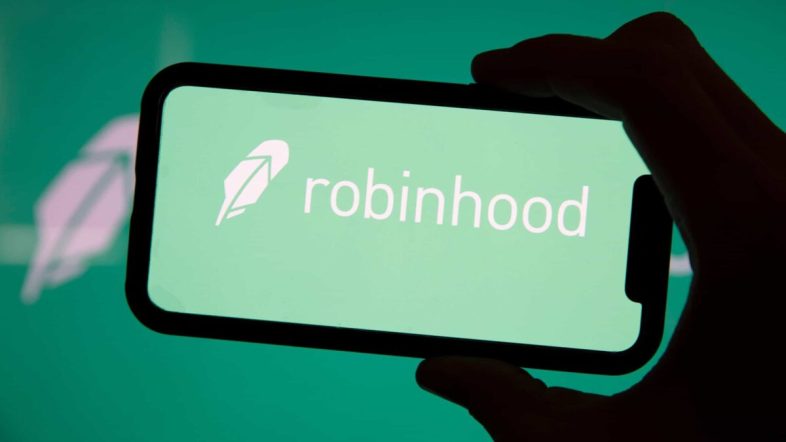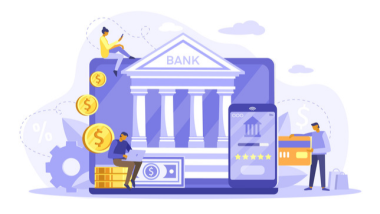In late 2020, the SEC fined Robinhood $65 million for misleading customers about how they make money. Since then, they have become more outspoken about how they generate income and disclose fees.
In March of this year, Robinhood Markets, Inc. launched a payment card that allows its customers to receive up to 8% cashback on purchases. This included the ability to earn bonuses ranging from 10% to 100%. Over the years, the company has attracted a significant user base thanks to such attractive offers. The platform’s pioneering feature of commission-free trading is what attracts most young users.
Because of this pioneering effort, the discount brokerage’s larger competitors were forced to adopt a similar strategy based on similar financial technology and commission-free trading. Consequently, other investment apps such as Webull, Charles Schwab and Acorns are now giving clients commission-free trading.
Robinhood offers financial services and a wide range of investment products and services, including equities, American depositary receipts, exchange-traded funds (ETFs), initial public offerings (IPOs), cryptocurrencies and options.
How trading on Robinhood works
Robinhood derives most of its income from accumulating minimal profits from individual trades. It achieves this by offering enticing features to clients such as “free promotions” and commission-free trading. It retains these clients by using behavioral triggers that encourage trading where they make small profits from those trades.
These behavioral triggers encourage certain actions to keep users interested. For example, Robinhood advertises that all new users will receive a free share – one randomly selected share of the company. They also use push notifications to keep users coming back. When the user’s position changes, Robinhood sends a push notification to remind them to check out the app.
This personalized user experience is the core of their strategy to keep people on their trading app for as long as possible. This app makes investing and trading easier by providing users with the most up-to-date data in the simplest possible format.
In order to trade on Robinhood, you first need to register an account. The Securities and Exchange Commission (SEC) requires all US brokerages to collect and verify sensitive personal information from their traders, including social security numbers and net worth. Robinhood users must connect a bank account in order to invest using the platform to transfer money to and from their trading accounts.
How Robinhood Makes Money: 6 Ways
1. Payments for order flow (Pfof)
Robinhood routes its users’ orders through a market maker who completes the trades and compensates the Robinhood business in fractions of a cent per share. HOOD’s Q4 2021 earnings report shows that transaction revenue was Robinhood’s largest source of revenue this quarter.
Instead of using a central exchange to make trades, Robinhood uses market makers who pay them discounts. While these discounts are only a fraction of a penny per transaction, they add up to a significant amount when applied to millions of accounts.
2. Robinhood Premium Gold
Robinhood’s premium service, known as Robinhood Gold, offers subscribers access to research reports, market data, large instant deposits, and margin trading. This generates separate revenue from the subscription fees paid by Robinhood’s premium user base. The monthly cost of this service is $5 per user.
About 7% of the company’s revenue comes from this premium subscription. As of March 31, 2022, Robinhood’s net cumulative funded account reached 22.8 million, four million more users than as of March 31, 2021.
3. Margin trading
Margin trading is the second largest source of income for Robinhood. In 2021, margin lending accounted for 12% of Robinhood’s net revenue. Robinhood customers can use margin lending to finance the purchase of shares with borrowed funds. Users borrow money from Robinhood Securities to invest on margin. Robinhood Gold includes basic margin trading.
The advantage of a margin loan is that it helps investors have more opportunities to invest quickly. But the downside is that if the value of their investment falls and they get a margin call, they could end up in even more debt. When the holdings in an investor’s margin account fall below the maintenance margin, the investor is subject to a margin call. When this happens, the account holder must either deposit maintenance margin or sell securities until the account balance meets the brokerage’s maintenance margin requirements.
Interest rates tend to be higher for those who use their available credit lines more actively, which means more money for Robinhood.
4. Cash management fee
Funds deposited with various banks that are part of the Robinhood Money Management Network cover the company’s fees. It also benefits from using the Robinhood debit card by charging exchange fees. Debit and credit card issuers often charge these fees to cover costs such as transaction processing and fraud losses.
5. Income from cash
To a large extent, Robinhood Securities can generate income by depositing customer funds into interest-bearing bank accounts if customers have money that is not invested or transferred to their money management network of banks. The higher interest rate is charged on the user’s cash deposit.
6. Service fee
Users who wish to transfer funds from the Robinhood platform to another broker will be charged a $75 transfer fee. Robinhood has a few additional charges, including $5 for paper statements, $5 for paper confirmations, and $20 for overnight check delivery.
Robinhood Security
Robinhood is a safe platform because it is primarily regulated by the SEC. This means that the site meets the same regulatory criteria as other popular brokers. It is also part of the Financial Industry Regulatory Authority (FINRA), which enforces the rules governing the behavior of registered broker-dealers and brokers in the United States on behalf of the SEC.
The Securities and Exchange Commission has fair business rules that Robinhood must follow. One of those rules is that Robinhood must prove the integrity of its dealings and tell the truth about its business, the securities it sells, and its investment risk. Otherwise, they may be fined or prosecuted in court. Thus, the SEC protects investors by strictly enforcing federal securities laws to hold companies accountable and delay future misconduct.
Cash Management accounts at Robinhood are also FDIC insured. And with the help of the cash cleaning program, users can transfer their savings to deposits in a group of affiliated financial institutions. This gives $1.25 million total FDIC insurance (or $250,000 per bank).
Another reason you feel comfortable using the platform is that Robinhood Financial LLC and Robinhood Securities are registered with the Securities Investor Protection Corporation (SIPC), which provides insurance for SIPC securities up to $500,000 (including $250,000 for cash claims). Robinhood has also purchased additional insurance through Lloyds of London to supplement its current SIPC protection limits.
Therefore, if a company goes bankrupt for any reason, investors have two options for recovering losses. Either they can get a cash refund or they will be blocked by another brokerage firm (with the account transferred to the adopter firm without loss of funds). Thus, your funds and investments are insured.
Consumer data protection
Here are some of the precautions Robinhood takes regarding user data:
- Encryption. Private information such as a social security number, a person’s name and bank account information is protected by encryption. To continue accessing your information after Robinhood has verified your identity for Know Your Customer (KYC) purposes, it will use trusted third-party integrations such as Plaid.
- Two-factor authentication: All Robinhood accounts can be made more secure by requiring two-factor authentication.
- Password security: To prevent unauthorized access to your account, Robinhood uses a standard password hashing process before storing them.
When it comes to passwords, you are responsible for protecting both the use of your password and access to it so that you are not liable if someone hacks into your account. It is important to remember that at the end of 2021, a hacker stole millions of email addresses and names from Robinhood. The hacker also gained access to some sensitive data of several users.
Robinhood is not the only platform targeted by such data theft attacks. Since January 2018, there have been nearly 1,000 data breaches at financial firms, affecting more than 153.3 million records. Cybercriminals often try to infiltrate these companies.
Wrap
Finally, you still have the necessary work to do to make an informed decision about your investment and the amount you are willing to risk.
There’s no doubt that Robinhood has had quite a bit of controversy over the past few years. The Securities and Exchange Commission once fined the company $65 million for failing to provide proper information about its profit-making practices and sued it for failing to provide its clients with the best stock trading prices. In January 2021, Robinhood temporarily banned investors from trading GameStop and other hot stocks on its platform.
In this case, users were trying to make a quick buck by buying GameStop shares as their price skyrocketed on Robinhood, but were suddenly unable to use the Buy button to do so. The company cited a liquidity crisis, Wall Street rules and clearing house limits as reasons for restricting trading.
Knowing the history of an investment platform before making any financial commitment is critical.
This article originally appeared on Wealth of Geeks.


